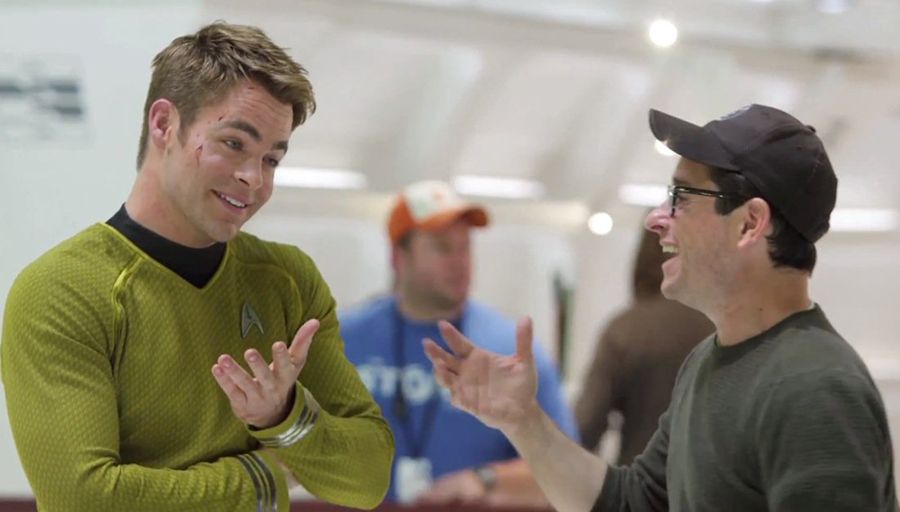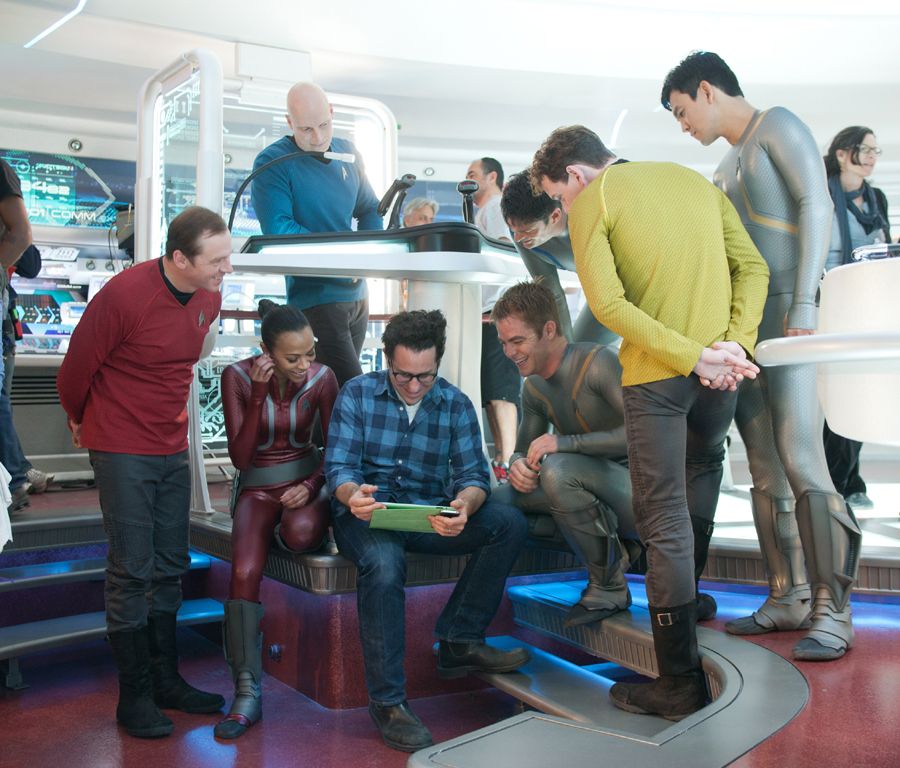J.J. Abrams may have moved on to Star Wars, but on Tuesday night, he was still very much in Star Trek mode. Speaking to each and every outlet on the white carpet at the Blu-ray release party for Star Trek Into Darkness, Abrams’ attention to detail was as sharp as ever as he discussed the film’s twists and turns, its critical reception, and his feelings about the Trek universe as he embarks on a different sort of journey.
The director spoke briefly with Spinoff Online about the film, first talking about choosing Khan as a villain, and then the ramifications of that character on the rest of the franchise’s mythology going forward. Finally, he chatted about his “mystery box” approach to moviemaking, which aims to preserve surprises for his audience, but as a consequence inspires so much anticipation from fans that it demands a pay off worthy of the speculation that precedes it.
Spinoff Online: Now that you’re finally able to talk about him being in the film, what to you was the point and the value of making Khan the villain of Star Trek Into Darkness?
J.J. Abrams: I think the thing was that Khan really is the most iconic villain of the series, and it felt like an opportunity to see another side of Khan and to something that, like the first film did, use elements that people were familiar with but in a new. It’s a valid argument that it’s about time for them to go off and discover and see things that have nothing to do with what we’ve seen before, and I think we’ll always have some overlap. But I’m excited about the next chapter.
Star Trek Into Darkness' Alex Kurtzman Talks Khan, Kirk's Journey and Carol's Underwear
One of the issues that Kirk deals with in the film is facing mortality personally and as a captain. What sort of conversations or concerns did you have in introducing Khan’s blood as sort of a get-out-of-jail-free card when it comes to that?
Well, it’s funny – we had this idea in the beginning of the film of this girl who is sort of being brought back into good health as a means of coercing her father to do something horrific, and it was sitting there. And we knew we wanted to do something that was going to kind of push Kirk to a limit where he was tested in a way he never had been before where he really had to appreciate the kind of chair that he was sitting in. And it ended up just coming out of realizing that we had this thing that was sitting there that was already set up in the movie. The idea for me with Khan that was so powerful was this was a sort of monster that we made – he was someone who, having been sort of genetically engineered and banished, he was someone who just like Kirk, loved his crew, and would do anything for them. And we realized that Kirk and Khan were very much in a similar position, and then finally we put them in a situation where you really question, can I trust him? Can I work with him at all? That to me was a fun thing, especially after the first movie where we had a wonderfully-performed bad guy, but a sort of simpler one, where it was just about a raving, vengeful, angry Romulan. So it was a fun thing to have a character that was able to have illuminating, deep, emotional, unexpected conversations.
How much do you look at the approach you take – the sort of mystery box – as much as a self-imposed pressure as an opportunity? Because it seems like some of the adverse reactions people had to the movie came out of determining whether the pay off to the surprise lives up to their expectations or anticipation?
I don’t approach things, though I had a conversation about the mystery box in the TED Talk I did, the mystery box thing for me is less of an approach to storytelling than it’s something I just feel [which is] you don’t want to ruin things. So it wasn’t like, “Hey, let’s make it a big mystery!” We just didn’t want to tell everyone what they were going to see before they saw it. It was simpler. So if people wish they had known beforehand, OK, I totally get it. But we just were trying to preserve the experience. But it’s not like we saved it until the end of the movie where there was a big, final, shocking reveal. This was something that was revealed by the middle of the movie to the audience. But if we’d gone forward with it and said, it’s Khan, it’s Khan, it’s Khan, and I never, unlike Simon Pegg, who literally lied to everyone and said “It’s not Khan,” I never said it’s not Khan. He read that he said “It’s not Khan,” and I was like, “It’s kind of Khan, Simon.”
But I think at the end of the day, the withholding of story elements for me is something I would far rather have as an audience member than someone ruining a good first or second-act twist. But look, for people who want to have that information in advance, there’s no shortage of access to that information if you want to see it. And I’m sure anybody who wanted to knew before they went to the theater that it was Khan.



